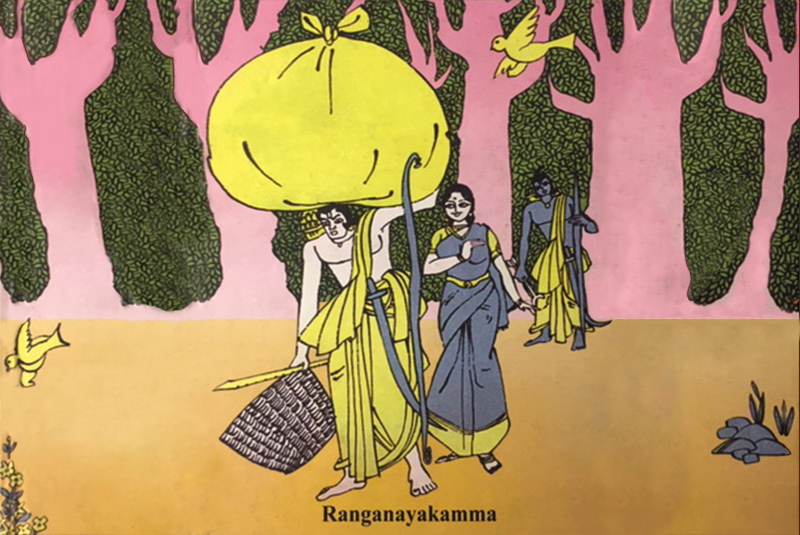After looking at this book or after reading a couple of words, virtuous people may feel like striking a match and burning it. If they burn it, it is the pages which will burn not thoughts…
Thus starts the Marxist writer Ranganayakamma’s book, Ramayana Vishavruksham. Meaning ‘Ramayana, The poisonous tree,’ it’s a reinterpretation of Valmiki Ramayana from a Marxian viewpoint. But what does Karl Marx and his body of thought – Marxism – have to do with the Ramayana? Why would “virtuous people” who read this work feel like burning it? The answer lies in the dissection of the idea of “Ramarajya,” or the rule of Rama.
In the popular imagination, the idea of Ramarajya is hailed as an envious state of cultural perfection, a glorious past that the contemporary nation must return to. Even Gandhi was so besotted by the idea that he wrote:
…the ancient ideal of Ramarajya is undoubtedly one of true democracy in which the meanest citizen could be sure of swift justice without an elaborate and costly procedure.
To Ranganayakamma, the idea of Ramarajya lacked this envisioned level of cultural hygiene. She writes of a kingdom fraught with inequalities, ruled by the “despotic interests” of kings like Dasaratha, Rama, and Ravana, whose reign favoured the interests of the rich class.
Copyright©Madras Courier, All Rights Reserved. You may share using our article tools. Please don't cut articles from madrascourier.com and redistribute by email, post to the web, mobile phone or social media.Please send in your feed back and comments to [email protected]











